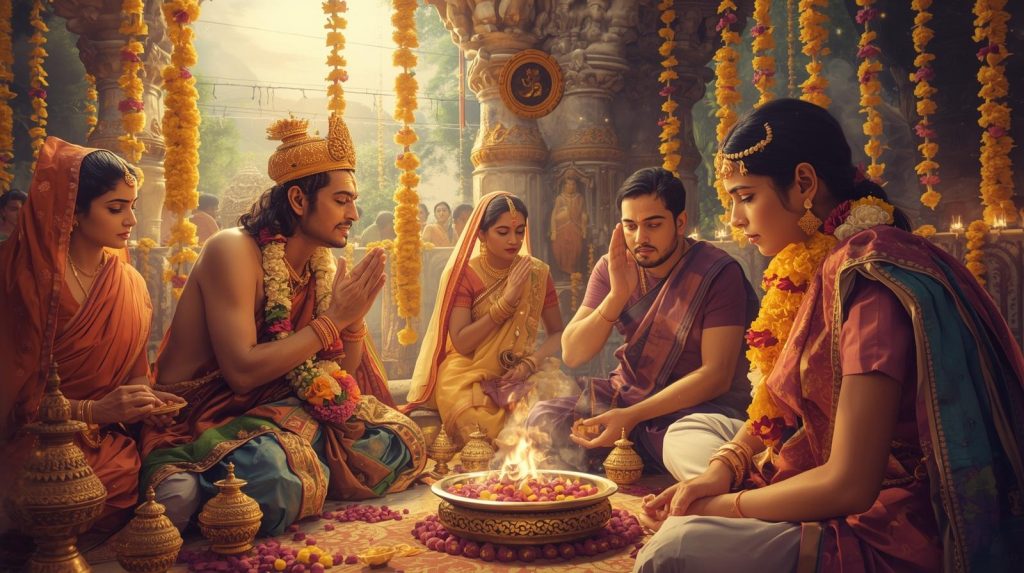Shanti Jayanti marks the birth anniversary of Bhagwan Shantinath, the 16th Tirthankara in Jainism. Observed with devotion and reverence, this festival is a celebration of peace, spiritual wisdom, and moral values. Across Jain communities, devotees honor Shantinath’s life through prayers, rituals, and gatherings, reflecting on his teachings of non-violence, compassion, and inner serenity.

Significance of Shanti Jayanti
The festival’s name, “Shanti Jayanti,” translates to “Victory of Peace,” symbolizing Shantinath’s role as a spiritual guide who championed Ahimsa (non-violence) and ethical living. It serves as a reminder of the Tirthankara’s ideals, inspiring followers to cultivate peace in their hearts and actions.
Rituals and Traditions
1. Temple Celebrations
Jain temples are beautifully decorated with flowers and lights. Devotees gather for Abhisheka, where the idol of Shantinath is bathed with milk, water, and holy substances, symbolizing purification and devotion.
2. Prayers and Mantras
Devotees chant sacred mantras, including the Namokar Mantra, and offer prayers to seek blessings for spiritual growth and inner peace.
3. Processions and Community Gatherings
In many regions, devotees organize processions with music, devotional songs, and recitations of Shantinath’s teachings. Community gatherings strengthen bonds among followers and spread awareness of his philosophy.
4. Meditation and Reflection
Shanti Jayanti is also a time for meditation, self-reflection, and introspection. Devotees contemplate Shantinath’s teachings, focusing on Ahimsa, compassion, and ethical living.
Modern Observance
In today’s fast-paced world, Shanti Jayanti continues to inspire mindfulness and spiritual commitment. Educational programs, discourses, and charity drives are often organized alongside traditional rituals to propagate the Tirthankara’s values in contemporary society.
Spiritual Lessons from Shanti Jayanti
- Non-Violence: Strive to act with kindness in every aspect of life.
- Compassion: Extend empathy to all living beings.
- Inner Peace: Focus on meditation and mindful living.
- Community Harmony: Celebrate togetherness and collective spiritual growth.
Conclusion
Shanti Jayanti is more than a festival—it is a celebration of peace, moral integrity, and spiritual wisdom. By honoring Bhagwan Shantinath through rituals, prayers, and reflection, devotees embrace his teachings and strive to embody the virtues of compassion, non-violence, and inner serenity in daily life. Shanti Jayanti reminds us that true spiritual victory lies in cultivating peace within ourselves and our communities.


